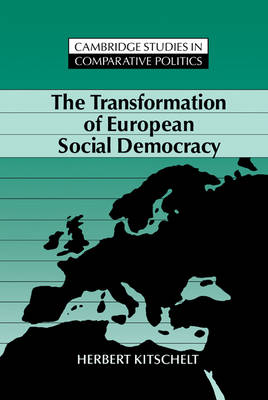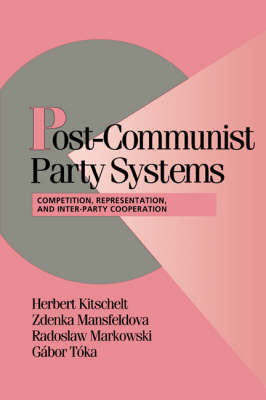Cambridge Studies in Comparative Politics
3 total works
This book explains the contrasting strategies and their electoral fortunes of social democratic parties in the major European democracies in the 1970s and 1980s. Going beyond approaches that focus on the influence of class structure and political economic institutions, The Transformation of European Social Democracy analyses the party's competitive situation in the electoral arena, the constraints and opportunities of party organisation, and the role of ideological legacies to explain the strategic choices social democratic parties have made and the electoral results they have achieved. Far from being doomed to decline, social democracy's success depends on its ability to transform its political message and to construct new electoral coalitions.
Post-Communist Party Systems
by Herbert Kitschelt, Zdenka Mansfeldova, Radoslaw Markowski, and Gabor Toka
Published 13 August 1999
Post-Communist Party Systems examines democratic party competition in four post-communist polities in the mid-1990s: Bulgaria, the Czech Republic, Hungary, and Poland. Legacies of pre-communist rule turn out to play as much a role in accounting for differences as the institutional differences incorporated in the new democratic rules of the game. The book demonstrates various developments within the four countries with regard to different voter appeal of parties, patterns of voter representation, and dispositions to join other parties in legislative or executive alliances. The authors also present interesting avenues of comparison for broader sets of countries.
Latin American Party Systems
by Herbert Kitschelt, Kirk A. Hawkins, and Juan Pablo Luna
Published 1 January 2010
Political parties provide a crucial link between voters and politicians. This link takes a variety of forms in democratic regimes, from the organization of political machines built around clientelistic networks to the establishment of sophisticated programmatic parties. Latin American Party Systems provides a novel theoretical argument to account for differences in the degree to which political party systems in the region were programmatically structured at the end of the twentieth century. Based on a diverse array of indicators and surveys of party legislators and public opinion, the book argues that learning and adaptation through fundamental policy innovations are the main mechanisms by which politicians build programmatic parties. Marshalling extensive evidence, the book's analysis shows the limits of alternative explanations and substantiates a sanguine view of programmatic competition, nevertheless recognizing that this form of party system organization is far from ubiquitous and enduring in Latin America.


